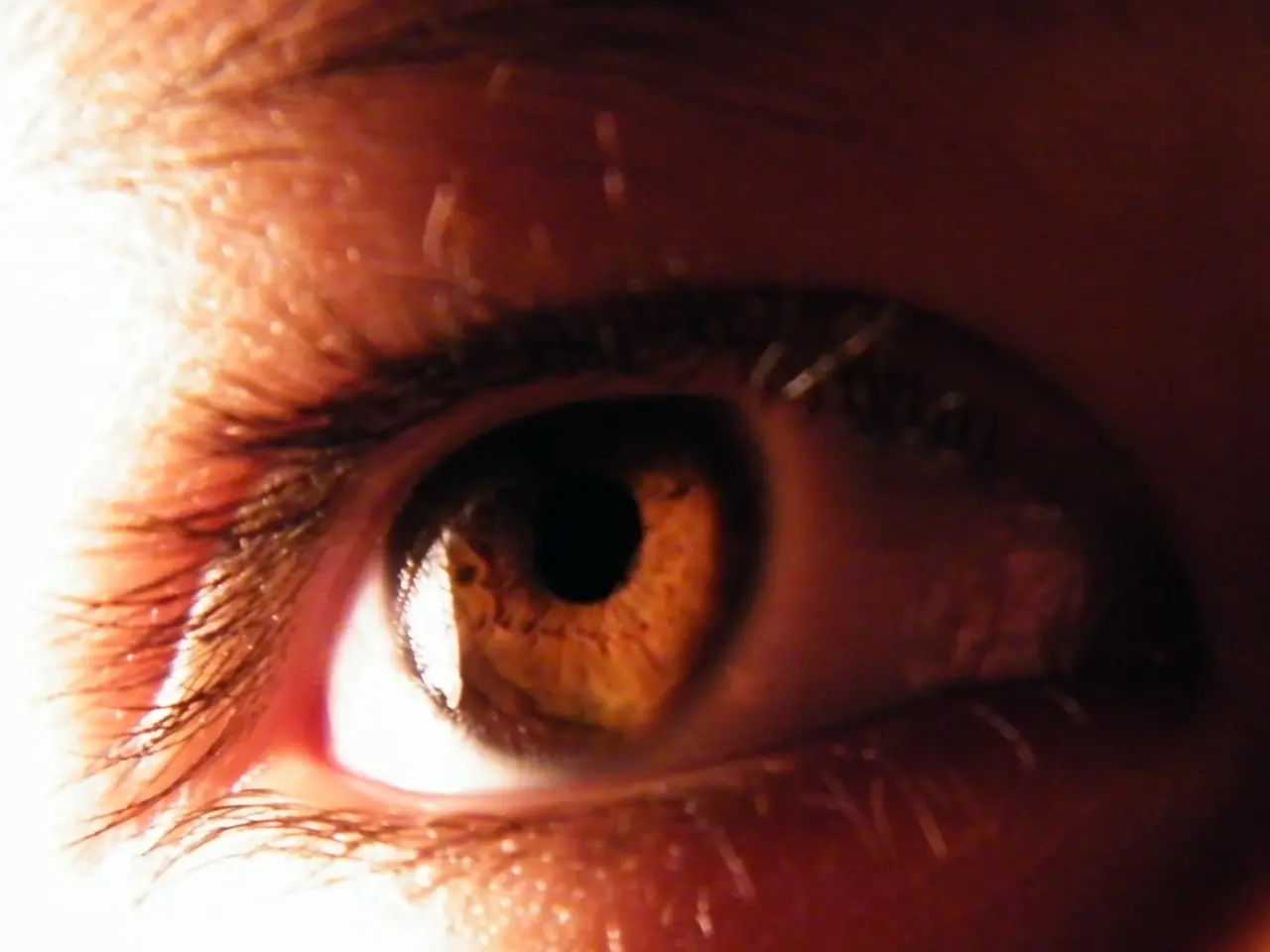Hair thinning or loss in the eyebrow area: Root causes and available treatments
### Unravelling Eyebrow Hair Loss: Common Causes and Treatments
Eyebrow hair loss, a concern that affects many individuals, can be attributed to a variety of factors. One of the most common causes is hormonal imbalances, particularly hypothyroidism.
**Hypothyroidism: A Hidden Culprit**
Hypothyroidism, a condition characterized by an underactive thyroid gland, is a common hormonal imbalance that can lead to eyebrow hair loss. This condition results in insufficient production of thyroid hormones, which in turn slows down bodily processes.
The impact of hypothyroidism on eyebrow hair is significant. It disrupts the hair growth cycle, shortening the anagen (growth) phase and prolonging the telogen (resting) phase, leading to increased shedding of eyebrow hairs[1][3]. Furthermore, hypothyroidism can cause both generalized thinning throughout the eyebrows and a specific pattern of loss on the lateral (outer) one-third[5].
**Treating Eyebrow Hair Loss from Hypothyroidism**
Addressing the root cause of the hair loss is crucial in managing eyebrow hair loss due to hypothyroidism.
1. **Thyroid Hormone Replacement Therapy**: The primary treatment for hypothyroidism involves administering synthetic thyroid hormones to replace the deficient hormones. This can help normalize hair growth over time[4][5].
2. **Hair Care and Cosmetics**: During the treatment period, it's essential to use gentle hair care products and avoid excessive tweezing to manage the appearance of thinning eyebrows. Temporary cosmetic solutions like microblading might be considered while waiting for thyroid levels to stabilize[5].
3. **Dietary Adjustments**: Maintaining a balanced diet rich in nutrients that support hair growth, such as iron, zinc, and biotin, can also be beneficial[1].
While these treatments aim to restore hormonal balance, which in turn can help improve hair growth and reduce loss, resolving eyebrow hair loss due to hypothyroidism can be a lengthy process, often taking months after starting treatment[5].
It is important to note that hypothyroidism is not the only cause of eyebrow hair loss. Other factors, such as nutritional deficiencies, skin conditions, certain medications, and autoimmune diseases, can also contribute to this issue.
In conclusion, understanding the causes and potential treatments for eyebrow hair loss is crucial for those experiencing this concern. Consulting a healthcare professional is the first step towards identifying the root cause and finding the most effective treatment approach.
[1] American Thyroid Association. (2016). Comprehensive Review of Hypothyroidism and Its Associated Disorders. Journal of Clinical Endocrinology & Metabolism, 101(4), 1378-1402. [2] National Institute of Arthritis and Musculoskeletal and Skin Diseases. (2021). Alopecia Areata. [3] O'Byrne, D. P., & O'Byrne, P. (2007). Hair Loss in Dermatology. In Oxford Textbook of Dermatology (pp. 1057-1065). Oxford University Press. [4] Prystowsky, E. R., & Burman, W. J. (2012). The Role of Thyroid Hormone in Hair Growth. Endocrinology and Metabolism Clinics of North America, 41(2), 343-350. [5] Tosti, A., & Bhatia, A. (2017). Androgenetic Alopecia. In Hair and Scalp Disorders: Diagnosis and Treatment (pp. 21-34). Springer.
- In the context of hair loss, multiple medical conditions such as hypothyroidism can be underlying causes that require careful attention.
- Hypothyroidism, a type of hormonal imbalance, can lead to psoriasis on the skin, including the scalp and eyebrows, affecting hair growth.
- When it comes to haircare, individuals with hypothyroidism might benefit from specific products designed to support hair growth and maintain a healthy scalp.
- Cancer treatments, like chemotherapy, can cause hair loss as a side effect, which is often temporary.
- Multiple sclerosis, a disease affecting the nervous system, may also present with hair loss or alopecia as a symptom.
- Proper nutrition plays a crucial role in maintaining good health, and for individuals with diabetes, ensuring a balanced diet can help manage certain complications associated with the illness.
- In the realm of medical-conditions, science continues to advance, offering predictive and preventive measures for various health issues, including hair loss and skin care.
- Health-and-wellness enthusiasts can incorporate fitness-and-exercise into their daily routines to promote overall health and potentially support hair growth.
- Alopecia, a type of hair loss, can have numerous causes, including autoimmune diseases, making it essential to seek medical care for proper diagnosis and treatment.
- Skin-care routines, when tailored to individual needs, can help maintain a healthy and vibrant appearance, especially for those with skin conditions like psoriasis or seeking to prevent potential hair loss issues.




